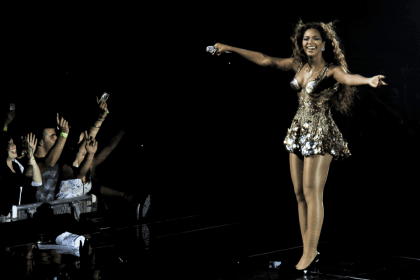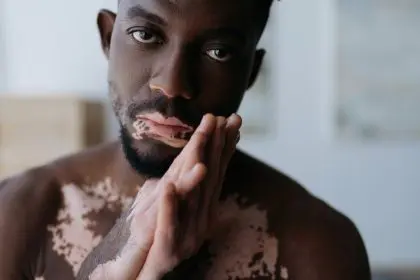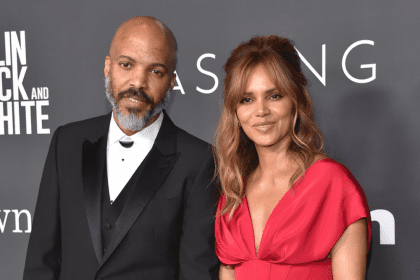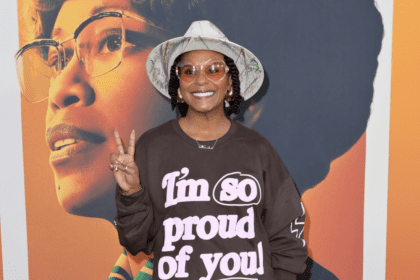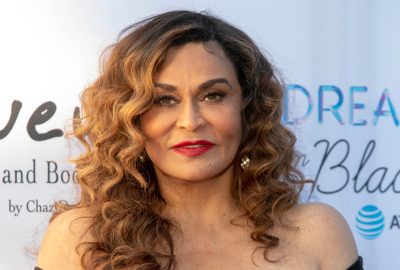
Sanderia Faye’s Mourner’s Bench has received praise ranging from “With Mourner’s Bench, Sanderia Faye announces herself as a bold, at times intoxicating, original voice in American fiction. This is a stunning debut” (by Dennis Lehane, author of Mystic River, Gone Baby Gone and Shutter Island) to “[A]n absorbing meditation on the meaning of religion in a small town as well as a keen-eyed perspective on the way one African-American community encountered the civil rights movement. An astute coming-of-age tale set against an all-too-relevant background” (by Kirkus Review). Mourner’s Bench explores religion, civil rights, voting rights, feminism and family dynamics.
Read what the author has to say.
What inspired you to write your first book?
After the bombing of the church in Alabama where the four girls were murdered, I’ve always wondered about the children. If the parents were protesting and didn’t have baby sitters, what were the children doing. I heard a story about young girls who worked to convince adults to register to vote, and even taught them how to read and write. The vision of those girls stayed with me. One day in class, the professor gave the class a writing prompt, and I wrote about those girls. From that day they became a part of me, and all these years later those few pages I wrote are in the book.

Do you have a specific writing style?
Voice is important in my writing. I need to hear the characters speak before I began to write. The story has to come alive in my mind where I hear the sounds and see the setting.
What books have most impacted your life (or life as an author)?
Ernest Gaines, all of his books and especially his short story, The Sky is Gray. Toni Morrison, Harper Lee, Maya Angelou, Jesmyn Ward.
What books are you currently reading? Why this author?
Charles Blow and Ta-Nehisi Coates. They have an eye on the pulse of America. Although, my novel is set in the 1960s, it also addresses the issues African Americans are experiencing today.
What new authors have piqued your interest?
Kiese Laymon, Jesmyn Ward, Tayari Jones, Mitchel Jackson. Most of the new writers because they are very honest. They leave it all on the page.
If you had to do it all over again, would you change anything about your latest work?
No, not now. I’m sure there may be some things, but it has gone through many revisions, and now that it is published, I don’t want to second guess myself.
Is there anything you find particularly challenging about writing or coming up with a concept for your book?
Facing the blank page is always challenging. Giving myself permission to take writing seriously. There are always stories swirling around in my head. The challenge is to wait and see which one speaks to me the loudest.
What was the hardest part of completing this project?
This project reminded me of a puzzle. All of the pieces were there, but constructing and shaping it into a narrative was the most challenging.
What advice would you give other writers?
To keep writing. I was given that advice from Ron Carlson and Alberto Rios when I first started writing, but it wasn’t until I finished this novel that I realized how valuable their advice was. Anything can be fixed if it’s on the page. Don’t allow doubt to rule you because it will take over and you won’t ever finish a story.
Describe the process in getting published? An excerpt from the novel was published in a book by the University of Arkansas Press.
I hoped they would like the piece enough to want to publish the novel, but at the time, they didn’t publish fiction. Years later, the press decided to try their hand at fiction, and the historian who edited the book that the excerpt was published in were in conversation with them at a conference and reminded them about my piece. I signed a contract with them a few weeks later.
What were the literary, psychological and/or logistical challenges in bringing your work to life?
Everyone’s process for writing is different. Explain yours. I generally know what I’m going to write when I come to the page. That doesn’t mean there won’t be any changes. I visualize the scenes and write it in my mind before I sit down to write. I can’t remember any instance where I sat down to write without having a very good idea about what I was going to write that I didn’t just sit at the computer for hours without writing anything.
What are five of your favorite books and why?
My favorite is whatever I’m reading at the time, and I’m usually reading to understand some element of craft. I love to read. Every book I read can teach me something.
Please provide three “good to know” fact about you. Tell us about your first job or the inspiration behind your writing.
- I ran a marathon. I trained and ran it while I was writing the first draft of the novel.
- Writing is a third career for me. I was an auditor first and then went into sales and marketing
- I love sports, especially football. Sports can teach you how to plot a story.
- I sailed with the Navy as a civilian instructor
What is the mission you set out to accomplish with your voice in this book?
I didn’t have a particular mission initially except to learn to write. It was my practice novel. The one that wouldn’t ever get published. Later, I realized that it was important to American history, especially Arkansas history.
Who are the authors you reread and why?
I reread the authors that I get so caught up in the story that I forget that my goal was to read to understand craft, especially Southern women authors from the slave narratives to contemporary.
A great book has what?
I’m drawn to story and voice. Characters that struggle to learn who they are and their role in the world. The s/heroes journey.
You develop character and ideas by …
Listening. The character is developed first. It can come from the way a woman sings a song at church or wipe her son’s nose. It’s that little thing that nobody else pays attention to, and I began to wonder why. Why was that a little out of sync.
Where would you travel if you could to write your next book?
France. I would love to live in a small apartment in Paris while I travel throughout Europe and Africa. I love to write while traveling by train.
What is the gift of reading and why does it open up a new world?
I grew up in a small town in the Arkansas Delta, and by reading I learned about people, the world, and possibilities. Because I was a reader, I knew that I wanted to work for a company that required me to travel.
Visit Sanderiafaye.com; Follow her on Facebook: Facebook.com/MournersBench and Twitter: @Sanderiafaye.

